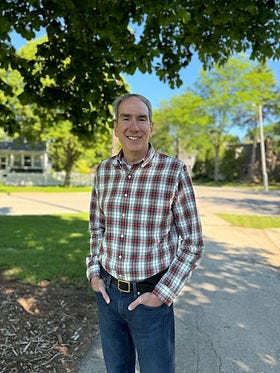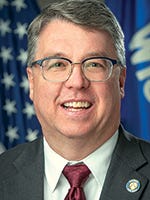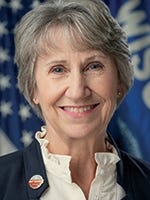The polls are open now. Wisconsinites are heading to the polls to vote on constitutional amendments, primaries, and formalize November matchups for those races without actual primaries. In addition to the primaries out there, I will be closely watching the outcomes of the constitutional questions and battleground districts in the Senate and Assembly.
I have already written urging people to vote against the constitutional amendments. They are many arguments to made against them, but the two biggest ones are pretty simple: they would slow down aid in times of emergency and it would set the Legislature above the Executive. Republicans haven't gotten over losing in 2018 or 2022, so they seek to slow down democracy out of pettiness and spite.
The Assembly battleground districts are as follows: 21, 26, 30, 51, 61, 85, 88, 89, 91, 92, and 94. The Senate swing seats include 8, 14, 18, 30, and 32. At the Congressional level, Democrats have a primary in the 3rd and the 7th Districts; Republicans have one in the 2nd, 4th, and 8th. How Republicans and Democrats perform tonight will be the first measurable test of voter enthusiasm in America's Biggest Swing State that isn't a poll or a rally since President Biden stepped aside.
While it is almost mathematically impossible for the Democrats to flip the State Senate in November, it is worth reviewing swing districts. I will do a full after-action for all winners at every level after the general election as I have gone beyond Substack’s limit at time of drafting.
I am choosing to highlight the swing Senate districts as each of them are made up of three complete Assembly Districts. It is easier to see, I think, where the enthusiasm lies by looking at the Assembly Districts, but like I said, I am already beyond the limit.
You can look up finance reports here. For some races, I have added the 72 hour report limits to the cash on hand in the most recent prior report.
The redrawn Senate District 8 forced two incumbent Republicans (Dan Knodl and Duey Stroebel) into a the same district. Senator Duey Stroebel is running for the seat and now-outgoing Senator Dan Knodl is running for his old Assembly seat. Stroebel will face Democrat Jodi Habush Sinykin, who ran against Knodl in a special election in April 2023. Habush Sinykin has over $300,000 on hand per the most recent filing report versus nearly $435,000 for Strobel.
Jodi Habush Sinykin. Photo credit: Milwaukee Journal Sentinel
Senate District 14 has Democrat Sarah Keyeski facing incumbent Republican Joan A. Ballweg. Keyeski has raised over $208,000 compared to Ballweg’s excess of $210,000. Ballweg was first elected to the Assembly in 2004 and won her first Senate term in 2020.
Sarah Keyeski. Photo credit: Psychology Today
Senate District 18 is an open race with a primary on the Republican side: cancer physician Anthony Wade Phillips faces businessman Blong Yang in a battle to take on the Democrat, businesswoman Kristin Alfheim. They have approximately $53,000.00, $18,000.00, $203,000.00 and on hand, respectively.
Kristin Alfheim. Photo credit: PBS
Senate District 30 is another open race with Republican Jim Rafter facing Democrat Jamie Wall. Rafter has roughly $9900.00 on hand compared to Wall’s $284,000.00.
Jamie Wall. Photo credit: Wall for Senate
Senate District 32 has incumbent Democrat Brad Pfaff facing Republican Stacey Klein. Of all the seats listed here, this is the only one held by a Democrat. Pfaff has a warchest of $216,000.00 compared to Klein’s $14,500.00.
Brad Pfaff. Photo credit: Greg Anderson
While some of the amounts are substantially smaller than others, the Wisconsin Republican Party has outsourced a lot of their fundraising to the Republican Assembly Campaign Committee and Republican Senate Campaign Committee as a whole. It is not necessarily a bad strategy and has worked for quite a while. This allows candidates to focus more on voter contact than fundraising, at least in theory. The Wisconsin Democrats want their candidates to supplement what the Assembly Democratic Campaign Committee and the Senate Democratic Campaign Committee do.
There’s two more races, both Assembly, that I’d like to highlight quickly.
In AD-44, Democrats Cathy Myers and Ann Roe are running for a seat vacated by outgoing Rep. Sue Conley. The race is safe enough that whoever wins the primary will win in November. This is a race of polar opposites: Roe has relied heavily on endorsements from Conley, former Rep. Debra Kolste, and former State Senator Tim Cullen. Roe has augmented this by limited doors and mail pieces.
Roe has also substantially out-fundraised Myers, but does not appear that Roe has spent more than Myers. Myers has focused her team’s energy and money on traditional canvassing efforts, buttressed by a strong mail and digital program. Roe ran for Congress in 2022. Myers has been elected four times to the Janesville School Board.
Outgoing Assemblywoman Sue Conley. Photo credit: Greg Anderson
In the 85th Assembly District, friend of the author Yee Leng Xiong has raised nearly $130,000 with over $90,000 on hand. This is the Majority Making seat. The district skews ever so slightly more Democratic, which essentially cancels out Pat Snyder’s incumbency advantage. Snyder has raised $18,600 and has just shy of $43,000 on hand. Whoever wins this seat will, in all likelihood, control Wisconsin’s lower house.
Yee Leng Xiong. Photo credit: Marathon County Board
Xiong has served has a Supervisor on the Marathon County Board, Trustee on the Weston Village Board, and Member of the D.C. Everest School Board. Folks in the 85th know him well and while this will be an exceptionally close race, I could not be prouder of my friend than I am today. He’d much rather find common ground but would never turn his back on his community or his ideals.
Give em hell, buddy.











